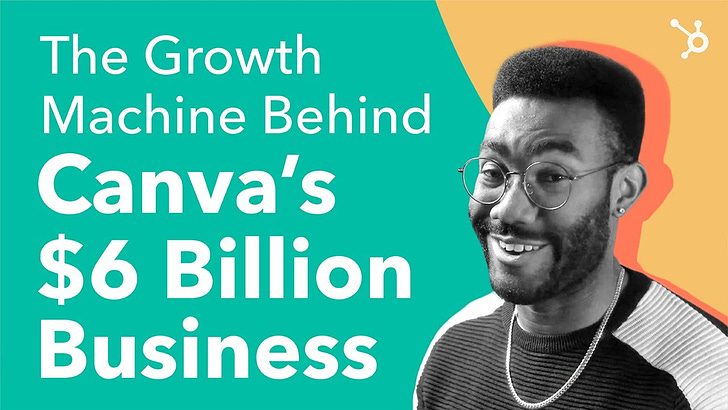- The Solo Founder Newsletter
- Posts
- 📰 The Solo Founder Newsletter #99
📰 The Solo Founder Newsletter #99
Why We Buy Things We Don’t Need
Good morning founders,
In today’s issue, 40 learnings about entrepreneurship, why we buy things we don’t need, SEO without the BS, and the 4th year learnings of Michael Lynch.
Let’s get started!
But first, this issue is sponsored by…
Automate compliance and streamline security reviews - get $1,000 off Vanta
Whether you’re starting or scaling your business, demonstrating top-notch security practices and establishing trust is more important than ever.
Vanta automates compliance for SOC 2, ISO 27001, and more, saving you time and money — while helping you build customer trust.
Plus, you can streamline security reviews by automating questionnaires and demonstrating your security posture with a customer-facing Trust Center, all powered by Vanta AI.
Join the 7,000+ global companies that use Vanta to manage risk and prove security in real time.

We buy how things make us feel.
📰 In today’s pick…
Here are 40+ learnings about entrepreneurship I wish I knew sooner:
Starting a business can be painful.
You feel lost 97% of the time - the ups and downs are gut-wrenching.
I wish I had a cheat sheet of principles for my first startup.
So I wrote one.
Here are 40+ learnings about entrepreneurship I wish I knew sooner:
— Jesse Pujji (@jspujji)
5:38 PM • Sep 15, 2021
Snippets:
1/ Tenacity is the most important trait for building a company.
It is not intelligence, creativity or salesmanship, but sheer determination.
Wake up every day and push the ball forward.
2/ Making decisions is hard; but a 'bad decision' outweighs no decision every time.
As you learn, you will even start to make good decisions.
…
12/ Competition is usually a sign you picked a good market; don't obsess over competitors.
At most, they are a source of data about your customers' needs. Obsess over your customer.
…
22/ As a founder/owner/manager, you are not the same as your team.
Even if you sit next to them, joke around and hang out.
Your ability to impact someone's career (and therefore their life) makes you different.
The sooner you realize this, the better you will be at your job.
…
28/ Intuition and your "gut" are more data (or experience) driven than most people admit.
You are unlikely to have intuition on day 1, but after thousands of hours you will "feel" the answer faster.
…
@jspujji
Why We Buy Things We Don’t Need
Snippets:
We never buy what we think we’re buying. We don’t buy things.
We buy how things make us feel.
Take Uggs.
No one has a desire to own Uggs.
It doesn’t make sense. You have a desire to be comfortable and a desire to fit in. That’s why you buy Uggs.
And when you wear your Uggs, you get the feelings that you purchased. You feel comfortable and you feel like you fit in with your group of friends.
This is further evidenced by the reasons people cite for not buying Uggs: They do not want to feel like they fit in with the kinds of people who would buy Uggs.
Because purchases are emotional.
No matter how inconsequential of a purchase decision you deem it — you’re still choosing it based on emotion. Even commodities.
“But I just pick the cheapest and move on with my life. How is that emotional?”
It’s emotional because there are implications about you built into the purchase.
If you view yourself as a salt-of-the-earth self-made man immune to the effects of advertising, well, buying cheap is very emotional because it affirms your self-concept.
Self concept: “I’m smarter than every other shopper, they’re fallin’ for this brand bull$%^&. Mmm mm not me.”
Try getting someone like that to buy the expensive bolt at the hardware store.
Margo Aaron
SEO: How to cut through the bs
Snippets:
K: There's lots of misinformation about what's actually best practice in SEO, how do you stay up to date with changes?
S: The basics don't really change too much - it's just about providing high quality, useful content that serves users’ needs, on a website that works well and has some links going to it from other respectable sites. The relative importance of the factors is what tends to change, for example site speed is a much more important ranking factor nowadays than it used to be.
The Moz Blog is a great source of information for new and experienced SEOs alike.
K: For copy and content writers who are tasked with writing blogs, how can they take a blog from 'good' to 'great' in terms of SEO?
S: First and foremost, write in a natural way that's best for the reader. Then try to slip in a few keywords here and there if needed. Don't go overboard though, Google is clever enough to understand the semantic relevancy of related terms.
Search for the keyword that you're targeting and see what other sites rank in the top three spots. What can you do to make your piece better than them? Synthesising them can be a good approach.
Think about internal linking. It's one of the best ways to signal to search engines what pages on your site should be ranked for different keywords - so have a strategy. When linking to a page, use anchor text that matches the target keyword of the destination page.
Mehdeeka
My Fourth Year as a Bootstrapped Founder
Snippets:
Lessons learned - Sell just one thing For most of the year, TinyPilot earned between $20k and $30k in monthly revenue. The months where sales jumped were because of positive reviews, mainly on YouTube.
Starting in October, revenues doubled to $40-60k/month, but TinyPilot didn’t receive any new reviews in those months. In fact, I didn’t do any marketing at all.
So, what doubled sales? I got rid of our product page.
Screenshot of old TinyPilot product page, listing Voyager and Hobbyist kit side-by-side TinyPilot used to offer a variety of products.
Instead, I focused the website exclusively on our flagship product, the TinyPilot Voyager.
In October, I removed the product catalog page from TinyPilot and focused on my flagship product.
Sales jumped immediately. At first, I thought it might be a coincidence, but they’ve stayed in their new range for several months now.
Graph of TinyPilot weekly revenue, where an increase in revenue immediately follows consolidation to one product TinyPilot’s weekly sales before and after simplifying the website to sell a single product
I think the change eliminated friction and decision-making from the buying process. Customers didn’t always understand the difference between our products or whether they needed to buy accessories separately. Now that there’s only a single option, the purchase decision reduces to a straightforward question: do you want this product?
Michael Lynch
This is the free edition of The Solo Founder Newsletter. If you haven’t upgraded, to sign up for the full newsletter experience, plus the monthly roundups and additional perks, click here




